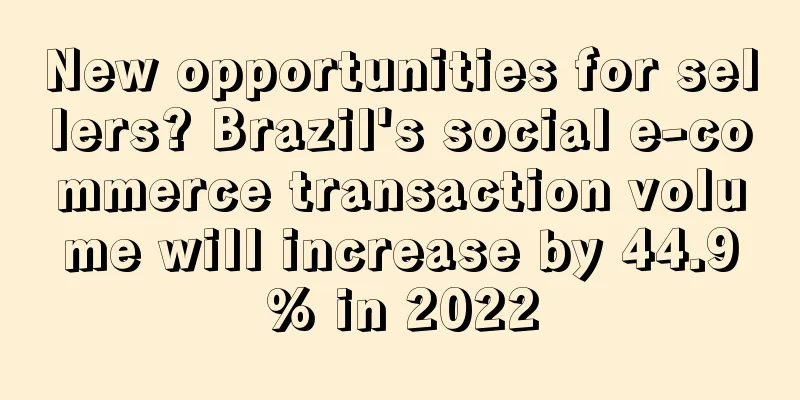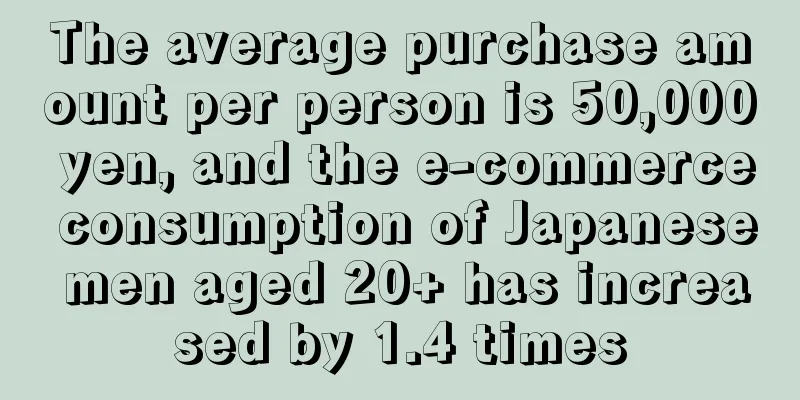New opportunities for sellers? Brazil's social e-commerce transaction volume will increase by 44.9% in 2022

|
As social media platforms such as Tik Tok, Facebook, and YouTube become increasingly popular, brands and merchants have seized on this hot trend and started selling products on social media platforms. Social e-commerce has begun to become one of the e-commerce channels.
Social commerce is currently popular among consumers around the world, including in Latin American countries such as Brazil. Therefore, studies have shown that in the next one to two years , the growth rate of purchasing products through social media platforms such as Tik Tok and Instagram will exceed other traditional e-commerce channels .
According to the survey , in the past year , due to the increasing penetration of the Internet and smartphones among consumers , more than 50% of Brazilian consumers have made online purchases through social media platforms . In addition, the shift from physical store consumption to online consumption has also led to an increase in the penetration rate of social media buyers in Brazil. Industry insiders believe that Brazil's social media platform shopper penetration rate is the highest in Latin America , at 40% .
According to research and analysis, Brazil's social e-commerce GMV ( total transaction volume ) is expected to grow by 44.9% in 2022 to reach US$2.2186 billion . At the same time, Brazil's social e-commerce will grow steadily in the next few years , with a GMV compound annual growth rate of 39.7% between 2022 and 2028 , reaching US$15.9017 billion by 2028 .
For Brazilian social e-commerce shoppers, compared with pricing and discounts, they hope that social media platforms can recommend more cost-effective products of the same type based on their browsing history, and that the platform can use videos and pictures to more intuitively show the functions of products. In addition , Brazilian consumers hope that social media platforms can reasonably set up the user interface to make shopping more convenient.
Influencers ( influential people such as internet celebrities and celebrities ) are another factor driving the rise of social e-commerce in Brazil . It is reported that in August 2021, more than 60% of Brazilian consumers participated in social commerce , and nearly 26.5% of consumers made purchases through influencer live broadcasts . The credibility of influencers in Brazil has reached more than 75%, and the study believes that influencers will continue to drive the development of social e-commerce in the next one to two years .
It is understood that Kuaishou has launched a live shopping service in Brazil, which is still under testing. Driven by this service , the average monthly active users of Kuaishou in Brazil are increasing rapidly .
As one of the countries with the most active e-commerce development in Latin America, Brazil's social e-commerce is in its infancy. Sellers can continue to track the development of this market and consider whether to seize this market opportunity . Brazil Social e-commerce |
<<: Surprise! Amazon Japan will lift this restriction starting May 16
>>: It’s hard to get commission! Amazon operation: I only got commission for two months a year
Recommend
Amazon India ends "SBD activity", expects social e-commerce sales in the United States to reach US$36.6 billion this year
Amazon India ends "SBD campaign" On Jul...
Take it off the shelves! GBC Law Firm has another new case
As an old friend in the cross-border circle, GBC ...
What is Hickies? Hickies Review, Features
Hickies is a shoe accessories company based in Bro...
Amazon sellers switched to independent websites, and their sales quadrupled in 3 months, with monthly sales reaching 2 million
An Amazon seller of electric bicycles transformed...
eBay Australia launches sports shoe authenticity guarantee program
eBay said it will work with third-party authentic...
Amazon's product review policy may undergo major changes, sellers: It's better not to change it!
In addition to sellers, domestic and foreign medi...
British people prioritize fitness when shopping, with searches for fitness and fitness surging by 118% and 83% respectively
According to foreign media reports, eBay Advertis...
Online food orders in Russia increased 177% year-on-year
According to Wildberries , food sales on online p...
South Korea's e-commerce market to reach $325 billion by 2025
According to data research firm ResearchAndMarket...
What is Yuanchuang International Logistics? Yuanchuang International Logistics Review, Features
Yuanchuang International Logistics is a high-quali...
Russia's footwear and apparel market is recovering, with sales of men's clothing doubling!
Recently, experts from the Mindbox platform analy...
SHEIN and AliExpress banned some clothing due to excessive chemical content
Brands such as SHEIN and AliExpress are currently...
The average online shopping expenditure per capita is US$304, and Türkiye's e-commerce market has great potential
The report shows that the average online shopping...
What is RepriceIt? RepriceIt Review, Features
<span data-docs-delta="[[20,{"gallery"...
What is Paya Payments? Paya Payments Review, Features
Paya Payments makes payments easier, providing in...









